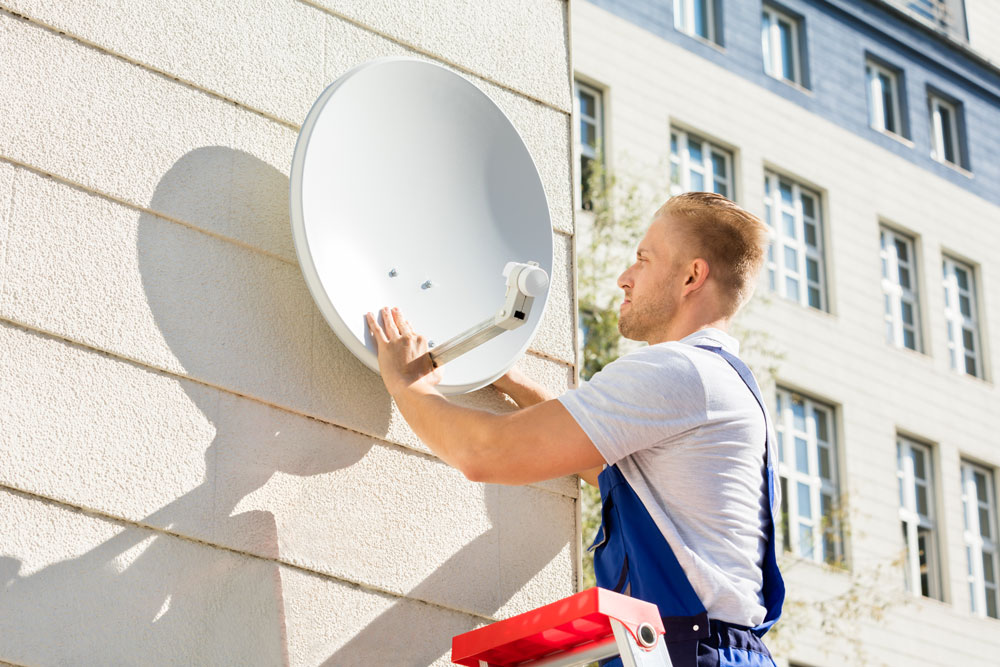
Q: My next door neighbor wants to install a satellite dish on his house. I am worried that it will create an eyesore next to my home. I read our association’s documents, but they do not seem to address satellite dishes or even require approval by the architectural review board. Will my neighbor be able to install the satellite dish? (K.B. via e-mail)
A: Probably, but it will depend on the size of the satellite dish and the location where your neighbor intends to install it.
Pursuant to the rules adopted by the Federal Communications Commission, restrictions governing condominium and homeowners’ associations cannot impair the installation, maintenance, or use of antennas, which are one meter or less in diameter, and which receive direct broadcast satellite service, or television broadcast signals installed on property within the exclusive use or control of the owner.
Therefore, owners are permitted to install satellite dishes spanning one meter or less in diameter, so long as the owner has exclusive use or control of the area where the dish is to be installed. The association cannot require prior approval of such installations, but can adopt location requirements, so long as the specified location does not prevent a home owner from receiving signals of acceptable strength.
Q: My condominium association recently recorded an amendment to the declaration. Afterwards, some of our members pointed out that there were grammatical errors in the amendment. How can we fix these mistakes? (M.M. via e-mail)
A: The Florida Condominium Act states that nonmaterial errors or omissions in the amendment process will not invalidate an otherwise properly adopted amendment to the declaration. Although “errors” or “omissions” are not specifically defined by the statute, grammatical errors would appear to fall within this scope. However, that does not translate to a right to record corrections, perhaps save circumstances where what was recorded is not what the owners actually voted on.
Associations may correct errors or omissions in a declaration or other condominium documents by amending the document in the manner required by the document. Well written documents usually allow for the board to correct errors without requiring an owner vote. Under the Section 718.110 of the Condominium Act, if the document is silent, amendments correcting errors require the vote of a majority of the voting interests of the condominium.
Q: Our association’s bylaws state that directors are elected by a “plurality,” but the documents do not go into greater detail about the voting process. What does this mean? (C.M. via e-mail)
A: The Florida Condominium Act requires the election of directors to be determined by a plurality of votes cast. A plurality is different than a majority. Let’s say you have one person running for a board seat and there are 3 candidates. Let’s also say 50 people vote and Candidate 1 gets 23 votes, Candidate 2 gets 22 votes and Candidate 3 gets 5 votes.
Candidate 1 wins because she received a “plurality” of the votes, or more than any other candidate, even though she did not receive 26 votes which would have been a “majority.”
Q: At the board meeting following our HOA election, there was a board vote to elect a new president. The director who received the most votes in the election stated he was automatically the president but others disagreed and someone else was elected. Was he correct? (S.Q. by e-mail)
A: No. Absent contrary (and unusual) language in your bylaws, members of the board elect the officers and the officers serve at the pleasure of the board. It does not matter who received the most votes in the election of directors.
Joe Adams is an attorney with Becker & Poliakoff, P.A., Fort Myers. Send questions to Joe Adams by e-mail to jadams@beckerlawyers.com. Past editions may be viewed at floridacondohoalawblog.com.






Recent Comments